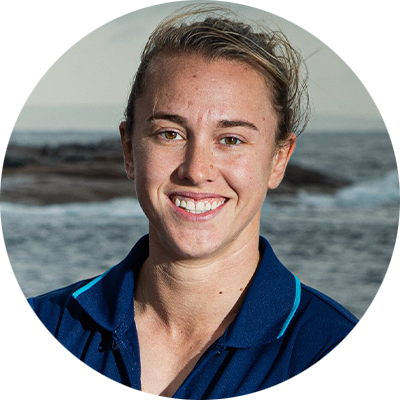Hello my friend in desktop mode.
Hello my friend in desktop mode.
Hello again my friend in desktop mode.
Hello again friend in mobile mode.
The Flinders University marine ecologist does this by fearlessly examining the foods ingested by the ocean’s top predators.
Her studies into shark diet and behaviour, which have involved her developing biochemical tools to assess a shark’s dietary intake, are bringing scientific clarity to these oft-maligned and widely misunderstood sea creatures.
“Gaps in research knowledge plug into our fears of sharks because we really don’t know these creatures,” says Dr Meyer. “I want my research to help change that.”
To monitor the impact of microplastics being ingested by tiger sharks, she is reviewing materials from research colleagues in the Reunion Island, Madagascar, Hawaii, the Gulf of Mexico, the USA, the Galapagos Islands, Brazil, Japan, South Africa and around Australia – with all the samples coming to Flinders University for analysis. “The sharks eat a lot of turtles and seabirds, which are notorious for ingesting a lot of microplastics. We need to know what this means for some of the ocean’s top predators.”
This research – part-funded by the Georgia Aquarium in the US (which made contact with Dr Meyer after being impressed by her biochemistry presentation at the 2018 Sharks International conference in Brazil) – illustrates the flow-on effect of damaging litter and waste products in oceans that are spreading throughout the oceanic food chain.
In studying a shark’s diet through biochemical methods rather than the traditional process of examining its stomach contents, Dr Meyer is able to identify such intricate details as the amount of microplastics ingested by alpha predators and the related threat posed to wider habitats. It’s a process she says can be applied across many marine species.
“If we only consider what white sharks eat on the ocean surface, then we assume their diets are dominated by seals and sea lions, without understanding what else they feed on – and therefore it’s no surprise we can be misguided about how many things can be on their menu, and what they choose to hunt for.”
Assessing a shark’s access to its preferred diet not only reveals crucial information about threatened species but also migrating populations – and possibly identifies reasons why sharks move into specific areas to hunt for food. “Linking diet to the movement of sharks has not been done before,” says Dr Meyer. “Looking at this in careful detail means that it’s not a one-size-fits-all approach to explaining sharks.”
The benefits of being plugged into such extensive global research collaborations have also inspired the creation of Dr Meyer’s tissue-sharing web platform Otlet, a free-access database housing an index of biological research samples that is now open for all research scientists working with any plant or animal anywhere in the world.
Dr Meyer has a unique cross-disciplinary skill set, having initially trained to be a doctor in the US, with a specific interest in biochemistry – but her study focus changed to oceanic ecology to satisfy her love of aquatic environments. She moved to Australia to complete her studies and gravitated towards analysing sharks and stingrays. “The top predators of the ocean are so unique. Studying them is fascinating – and far-reaching, especially coming from a biochemistry angle, which is unique in this field.”
She has also acquired precise skills in reading statistics, helping to plug her research capabilities into cross-disciplinary teams that link such diverse skills as veterinary welfare and advanced computer modelling, which steers ecology and food web research into previously unexplored directions. “It’s invigorating to work with such a diverse group of analysts, because any of their scientific findings keeps stimulating more questions that are worth exploring,” says Dr Meyer
“We now have a vast number of shark movement and diet databases, providing us with decades of information to draw from, but the big picture of unified ocean health is only being revealed to us one piece at a time.”
BRAVE MINDS
Discover how Flinders is making a difference to our culture, economy, environment society and world.
Subscribe to Flinders research
Sign up to get updates on upcoming events, news and more.
I consent to the collection, processing and disclosure of the personal information submitted in accordance with the Flinders University Privacy Policy.
![]()
Sturt Rd, Bedford Park
South Australia 5042
South Australia | Northern Territory
Global | Online
CRICOS Provider: 00114A TEQSA Provider ID: PRV12097 TEQSA category: Australian University










